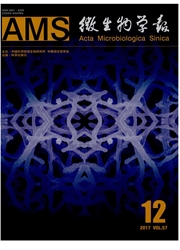

 中文摘要:
中文摘要:
有丝分裂原激活的蛋白激酶(Mitogen-Activated Protein Kinase,MAPK)信号通路是细胞感知外源性刺激并作出有效免疫应答的最重要的细胞内信号通路之一。近年来的研究表明:MAPK的表达异常与结核病的发生、发展密切相关。MAPK磷酸酶(MAPK phosphatases,MKPs)是一类在细胞内水解MAPKs家族的磷酸酶,通过负向调控MAPKs的活性,从而在调节细胞的应激、分化、增殖、凋亡等过程中发挥重要的作用,其中MKP-1是MKPs家族中被报道最多的成员,具有最强的去磷酸化能力。本文综述了MKP-1在结核分枝杆菌感染中的作用和研究进展。
 英文摘要:
英文摘要:
Mitogen-activated protein kinase (MAPK) signaling pathway is one of the most important intracellular signaling pathways in which cells perceive exogenous stimuli and make an effective immune response. Recent studies have shown that the dysregulation of MAPK is highly associated with tuberculosis pathogenesis. The MAPK phosphatases (MKPs) are the prototypic phosphatase that could dephosphorylate the MAPKs, thus play an essential role in the regulation of cell stress, differentiation, proliferation and apoptosis by negatively regulating the activity of MAPKs. Among all the MKPs, MKP-1 has the strongest ability to dephosphorylate MAPKs. In this review, we summarize the role of MKP-1 in Mycobacterium tuberculosis infection and relevant research progress.
 同期刊论文项目
同期刊论文项目
 同项目期刊论文
同项目期刊论文
 期刊信息
期刊信息
